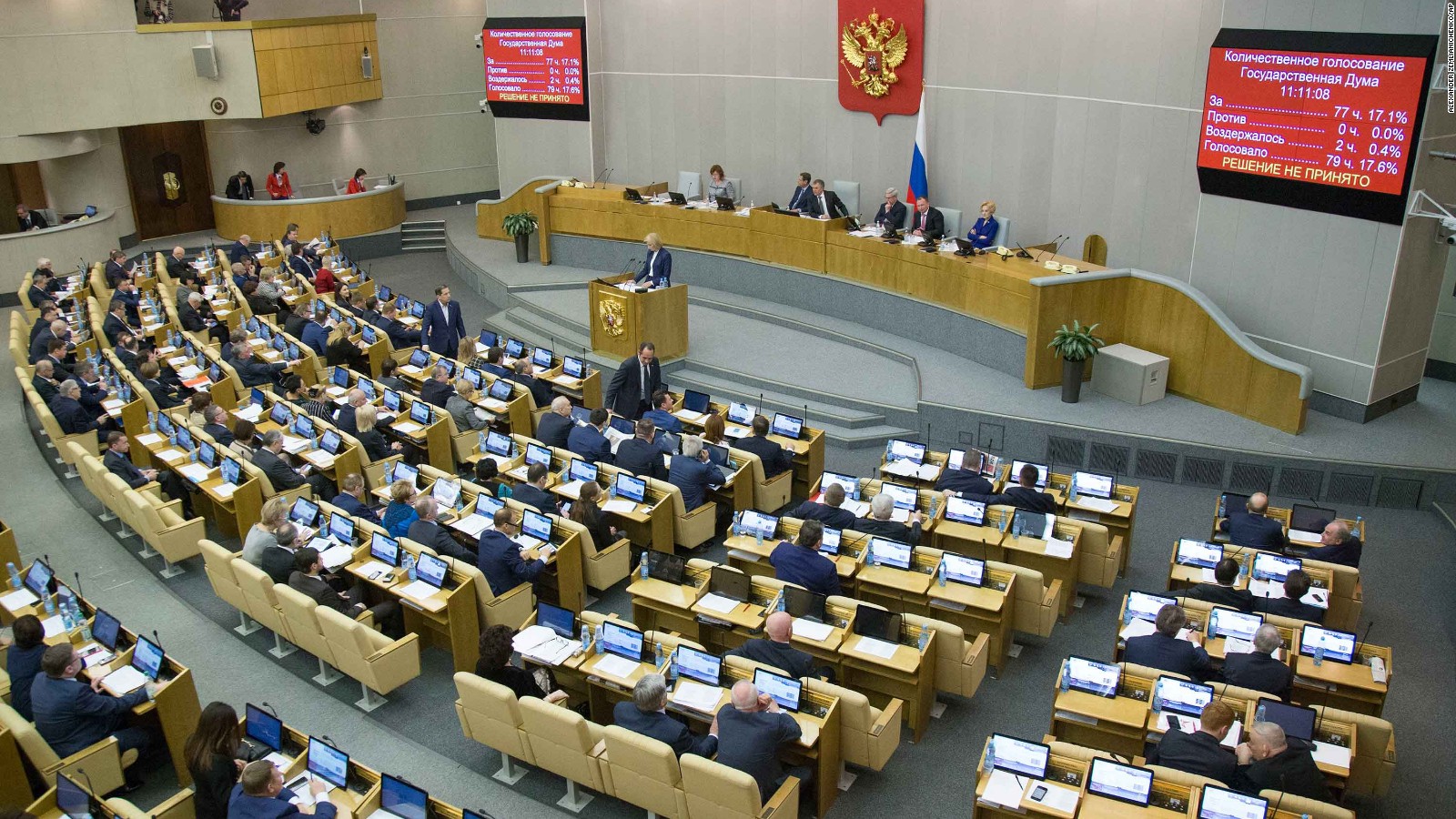Russia may decriminalize some domestic violence
Russian lawmakers back bill decriminalizing some domestic violence

The Duma has approved the draft bill in two readings, on Wednesday voting overwhelmingly in its favor.
Story highlights
- Bill decriminalizes first offenses that don't cause serious physical harm
- Kremlin says 'creating solid families is a priority'
Moscow (CNN)A bill that would decriminalize some forms of domestic violence in Russia passed a key stage in the Duma on Wednesday.
The
bill, dubbed the "slapping law," decriminalizes a first offense of
domestic violence that does not seriously injure the person, making it a
less serious administrative offense. The bill also includes violence against children.
More
than 85% of legislators in Russia's Duma approved the bill -- seen as
part of President Vladimir Putin's drive to appease conservative pushing
"traditional family values" -- on Wednesday in its second reading. It
will need a third reading and vote before going to the upper house and
then to the president to sign into law.
The
bill's sponsors, including conservative senator Yelena Mizulina, say
the proposed law would simply bring family law into line with reforms
passed last summer that loosened punishment for other minor assaults.
Mizulina,
a staunch proponent of traditional values, was also the author of
Russia's controversial "gay propaganda law," which prohibits "propaganda
of nontraditional sexual relationships."
The
Russian Orthodox Church, with its emphasis on the traditional family,
is also influencing the debate. So are the traditional rules of Russian
family life, including the "domostroi," a centuries-old manual
prescribing strict rules of behavior and requiring absolute submission
to the head of the family.
Kremlin
spokesman Dmitry Peskov declined to say whether domestic violence should
be decriminalized, but told journalists that "creating solid families
is a priority. It's what everyone needs."
'Huge step backward,' Human Rights Watch says
Women's
rights groups have vocally opposed the bill, saying that
decriminalizing assaults will only encourage more violence in a country
where the rate of assaults in homes are relatively high.
Human
Rights Watch has urged parliament to reject the law, calling it
"dangerous and incompatible with Russia's international human rights
obligations."
"Passage of this law
would be a huge step backward for Russia, where victims of domestic
violence already face enormous obstacles to getting help or justice,"
said Human Rights Watch Russia researcher, Yulia Gorbunova.
Activist Alena Popova has launched a petition on Change.org demanding that the Duma pass a completely new law against domestic violence. More than 224,000 people have signed it.
When asked whether Russia
needed a separate domestic violence law, Peskov told reporters Wednesday
that the current bill was also aimed at preventing violence.
"If
you take a look at the bill, responsibility (must be taken) in the case
of a repeat offense. So over-exaggerating the responsibility for
displays of family relationships would not be appropriate," he said.
"Undoubtedly,
there should be responsibility, there should be regulatory legislation
which could prevent domestic violence, but comparing domestic violence
to separate cases of minor importance from a legal point of view, is
hardly appropriate."
Official data
on domestic violence in Russia is not centrally collected so it's
difficult to verify. But state-run news agency RIA Novosti has reported
that 40% of serious crimes in Russia are committed in the family, 36,000
women are beaten by their husbands daily, and 12,000 women die yearly
as a result of domestic violence -- one woman every 44 minutes.
No comments:
Post a Comment